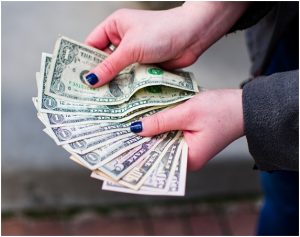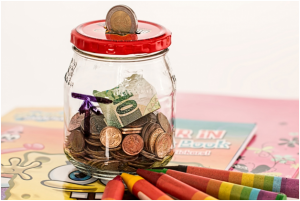Savings goals can be exciting when setting funds aside for fun things like a dream holiday or a lavish wedding, but what about those nasty surprises lurking around every corner? A broken-down car, high phone bill, or other unexpected expense can really take a toll on your budget.

Establishing a savings safety net can be tough, and for those on a low income, regular savings for life’s luxuries are completely out of reach.
How much should I save?
Experts recommend an emergency buffer of at least a two-week salary. This should be set aside for the unexpected, such as replacing your washing machine or repairing your car. On top of this, it’s recommended that each household has an emergency safety net of at least six months’ worth of bills and expenses.
According to a survey conducted by the Money Advice Service, four out of 10 adults in the UK do not have £500 in savings. A further survey by ING Bank found that 28% of adults in the UK have no savings at all.

According to this Independent article, UK adults think saving money is pointless, and with this in mind, more and more people are turning to investments instead.
Are there other options for saving with my bank?
Consider investment. If you’d like to see your money grow, take advice from an accredited financial advisor. This type of expert advice can assist you in budgeting better and freeing up funds to invest. Be sure to choose a financial advisor who uses software for financial advisors like the one provided roulette for real money. This type of intelligent financial software can provide up-to-the-minute financial information about your investment portfolio. They can also provide investment valuations at the touch of a button.
With savings rates at an all-time low, the incentive to seek out more desirable returns is strong. To help build your savings safety net, try these simple tips:
-Use coupons and vouchers.
-Invest your pay rise; you won’t miss what you never had!
-Buy non-branded products.
-Compare costs on purchases, especially major ones.
-Invest in unexpected funds, such as an inheritance or other windfalls.
-DIY your morning cuppa by using a flask-style mug for hot drinks. Those early morning lattes add up!
-Make lunch at home and save on expensive shop-bought salads and sandwiches.



